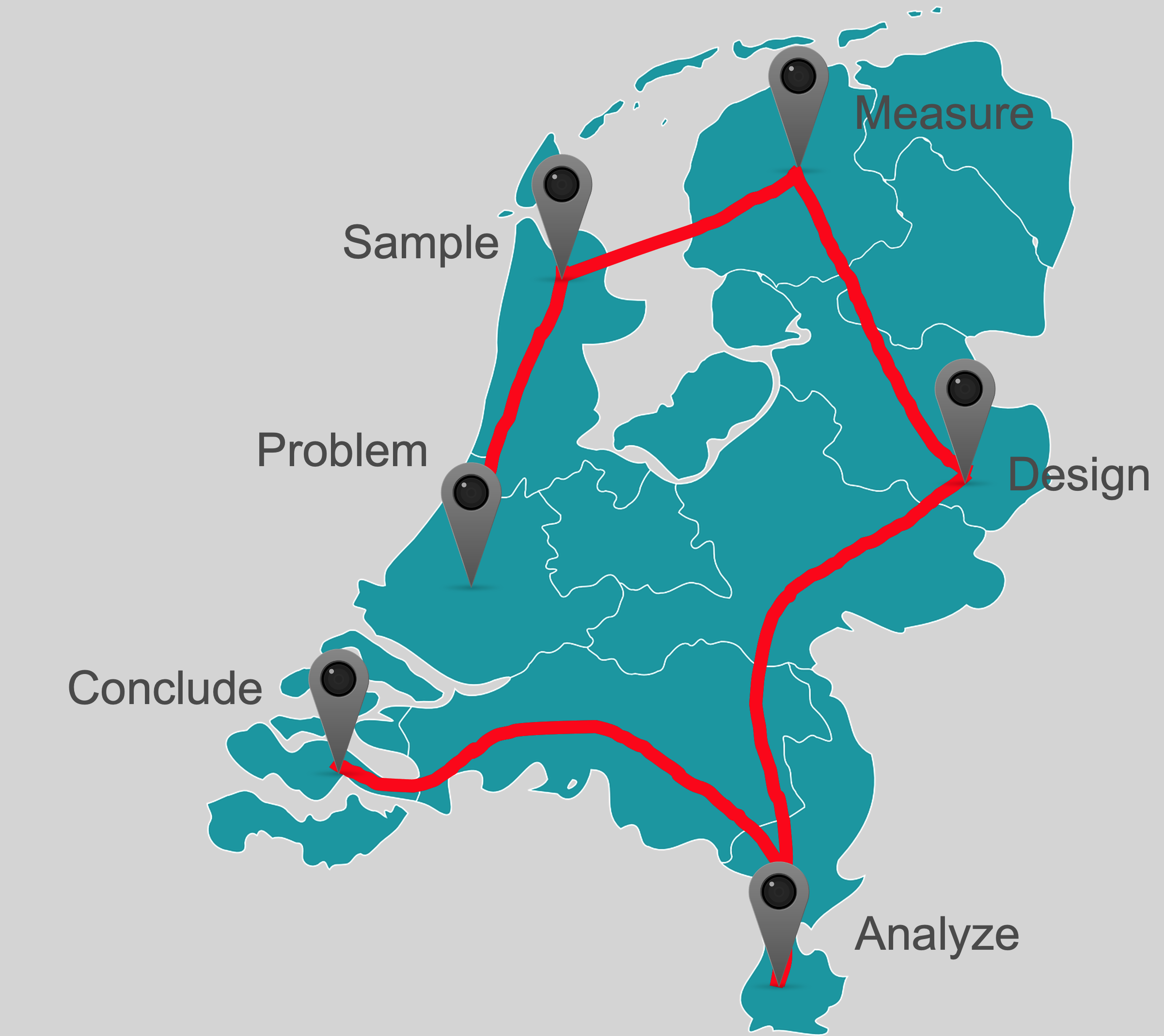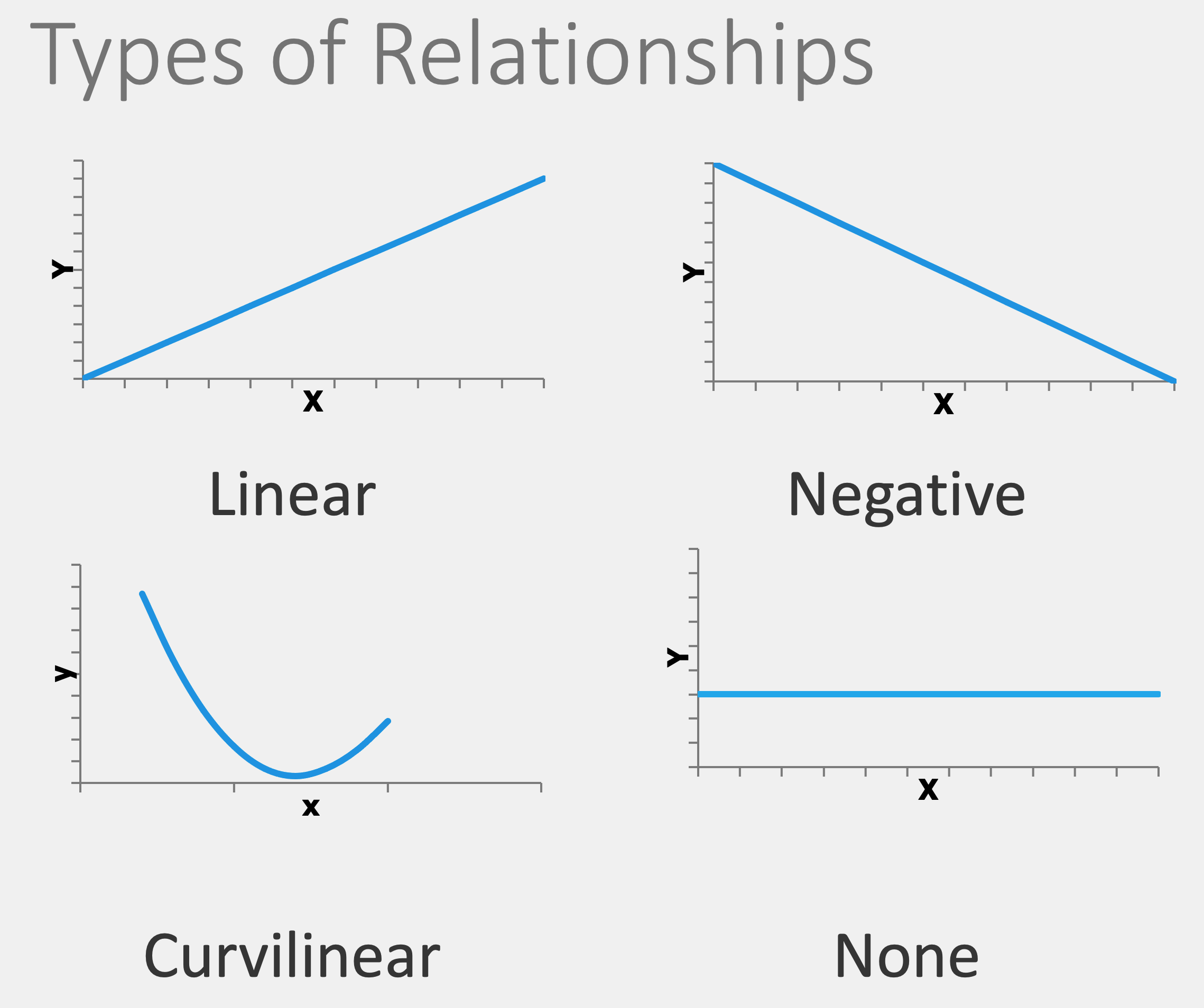1.2.5 Main Takeaways on Language of Research
Course subject(s)
Module 1. Introduction to Research
Research Journey

On the road of research we travel from problem to conclusion. Some of the key concepts we encountered along the way are:
- Sample: A representative selection of units from your population of interest, with the aim to be able to generalize the results from the sample to the population from which you choose your units.
- Measurement: The process of observing and recording the observations that are collected as part of a research effort.
- Variable: an entity that can take on different values
- Independent Variable: the variable you (or nature) manipulate.
- Dependent Variable: the variable which you presume to be affected.
Types of Study

- Exploratory Studies: Identify Key Issues and Key Variables.
- Descriptive Studies: Study the “what”.
- Relational Studies: Investigates the relationship between 2 or more variables.
- Causal Studies: Investigates if one or more variables cause or affect one or more outcome variables.
Types of Research
On the journey, we discovered that research can be split into Fundamental or Theoretical research and Applied Research.
- Fundamental research generalises problems and is about the basic process, not problem-solving. It explains the why and does fact-find and builds frontiers of knowledge
- Applied Research limits itself to individual specific cases and does not generalise. It looks for variables that create a difference and explains how things can be changed or altered. It corrects problematic facts.
Within these there are different types of research:
- Quantitative Research: is characterized by numbers and mathematics. It is inevitable iterative, evaluating evidence. Its results are often presented in tables and graphs and are conclusive. It tends to investigate the what, the where and the when.
- Qualitative Research: is non-numerical, more descriptive and argumentative in nature. It aims to get the meaning, feeling and description of the situation and is exploratory in nature. It tends to investigate the why and the how.
- Mixed Methods Research: a combination of elements of the previous two methods. Its data is also mixed in nature.
[Image: Derivative after Trochim’s Research Methods Knowledge Base, Way point Image by janjf93, Pixabay, CC0 and Netherlands Image by Clker-Free-Vector-Images, Pixabay, CC0]

Efficient HVAC Systems by TU Delft OpenCourseWare is licensed under a Creative Commons Attribution-NonCommercial-ShareAlike 4.0 International License.
Based on a work at https://online-learning.tudelft.nl/courses/efficient-hvac-systems//



